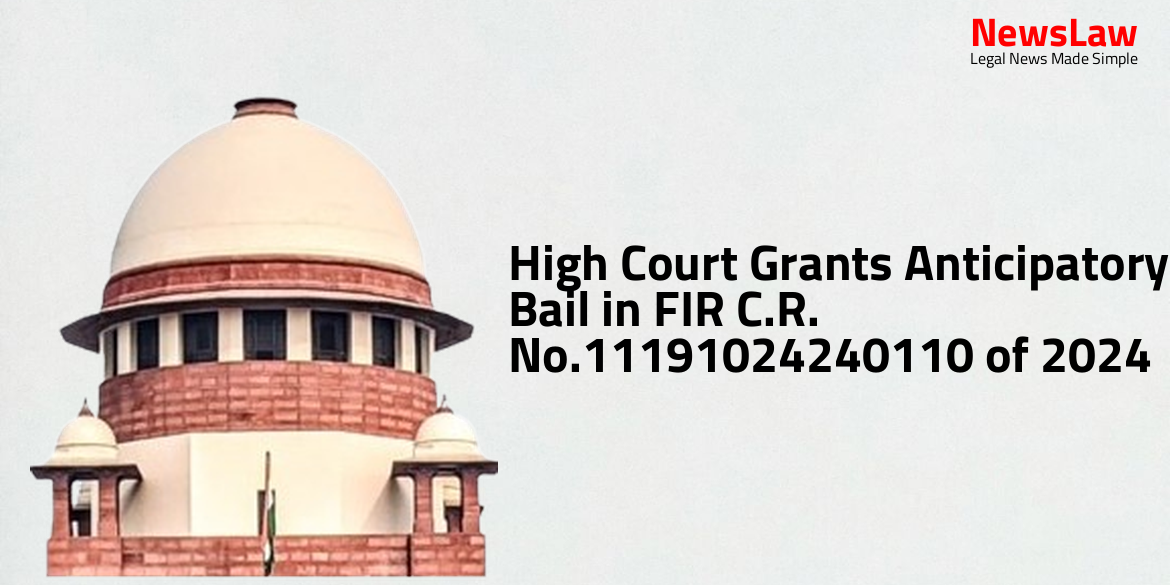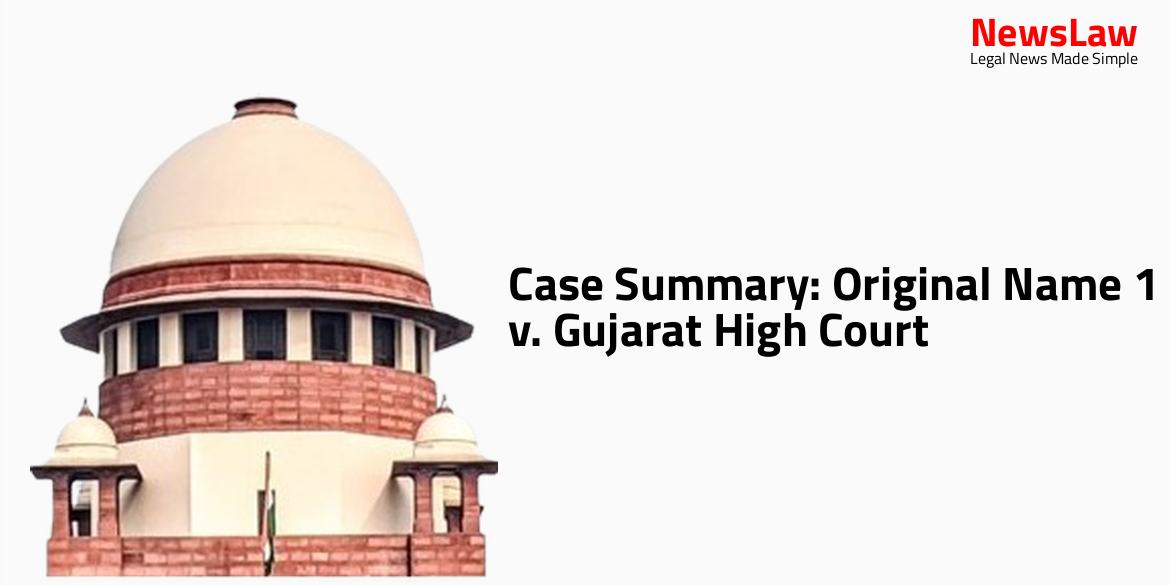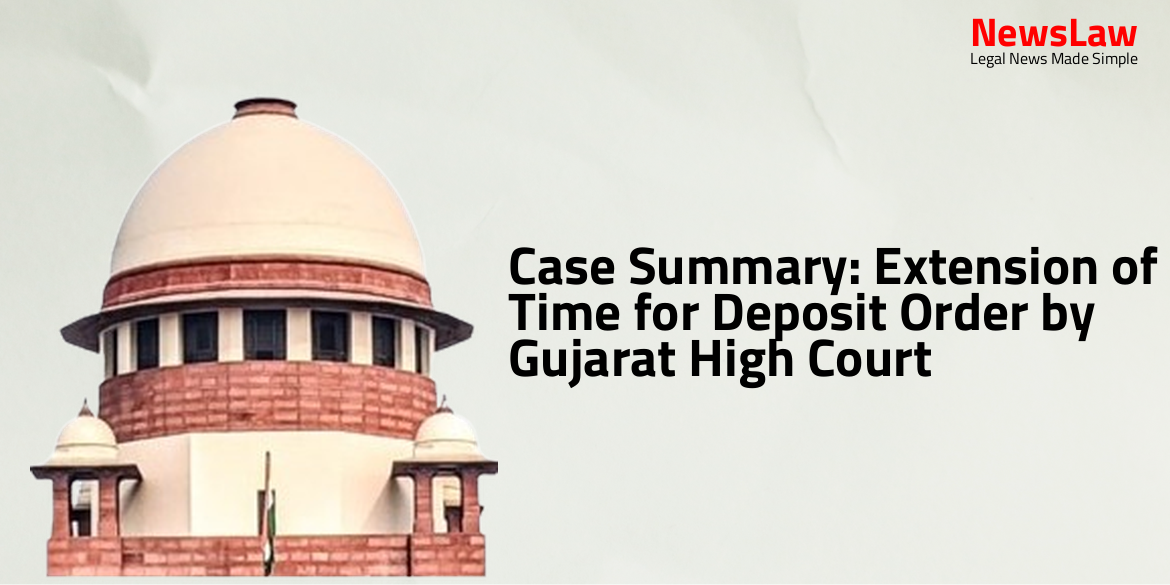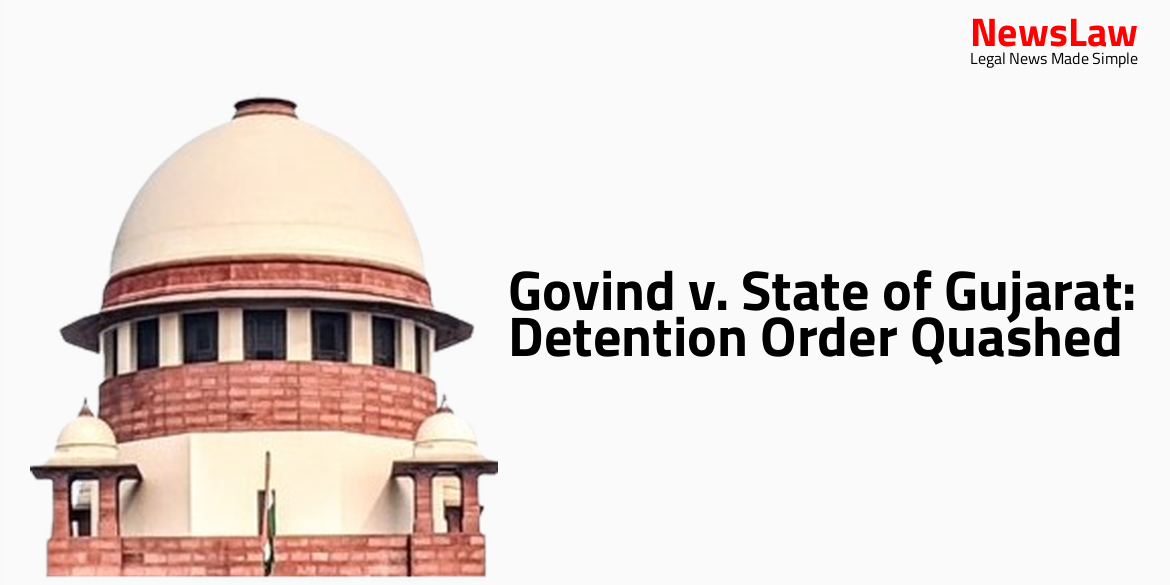In a recent legal case before the Gujarat High Court, a decision was reached regarding anticipatory bail in connection with FIR C.R. No.11191024240110 of 2024. The court considered the arguments of the learned advocates for the petitioner and the complainant before making its ruling. This summary highlights the court’s decision and the conditions set for the accused in this case.
Facts
- The present appeal is filed under Section 14A of the Scheduled Castes and Scheduled Tribes (Prevention of Atrocities) Act, 1989.
- The appellant accused has prayed for anticipatory bail under Section 438 of the Code of Criminal Procedure, 1973.
- The appeal is in connection with FIR C.R. No.11191024240110 of 2024 with Ramol Police Station, Ahmedabad.
Arguments
- Learned advocate for the petitioner argued that due to the nature of the allegations and the role attributed to the petitioner, anticipatory bail should be granted with suitable conditions.
- The advocate emphasized that the allegations against the petitioner were not of a serious nature and therefore, bail should be granted.
- It was argued that the petitioner is willing to cooperate with the investigation and should be granted bail to ensure fairness in the legal process.
- The request for anticipatory bail was made in light of the circumstances surrounding the case and the potential impact on the petitioner if not granted.
- The advocate highlighted that the petitioner has a good track record and is not a flight risk, making them eligible for anticipatory bail.
- Learned Additional Public Prosecutor and learned advocate for the complainant opposed grant of anticipatory bail.
- Both learned advocates prayed to dismiss the appeal.
- The court heard the arguments of both parties and perused the case papers.
- The court considered the nature of allegations, role of the accused, and the facts of the case.
- Without discussing the evidence in detail, the court inclined to exercise discretion in favor of the appellant.
Analysis
- The ingredients under the Atrocities Act are not attracted based on a prima facie reading of the documents.
- The offences punishable under sections 323, 504, and 506(2) of the IPC are relevant in this case.
- None of the offences have a maximum punishment of more than seven years.
- The appellant has successfully established a prima facie case for anticipatory bail.
- Although there is a statutory bar for granting anticipatory bail under the Scheduled Castes and Scheduled Tribes (Prevention of Atrocities) Act, it is not applicable in this instance.
- The guidelines issued in the case of Arnesh Kumar v/s. State of Bihar reiterated.
- Circular No. C.2703/81 issued by the Court to be followed.
- Law laid down by the Hon’ble Apex Court in Siddharam Satlingappa Mhetre vs State of Maharashtra and Ors. to be considered.
- Reiteration of law laid down by the Constitution Bench in the case of Shri Gurubaksh Singh Sibbia & Ors.
- Decision in the case of Sushila Aggarwal v. State (NCT of Delhi) to be taken into account.
- Prima facie case, nature and gravity of the accusation, severity of the punishment, absence of flight-risk character, behavior, means and position of the accused, and non-likelihood of the offence being repeated to be considered.
- Taking assistance of the judgment of the Hon’ble Apex Court in the case of Prithviraj Chauhan vs Union of India.
- Observations made in the judgment are tentative and the trial court should not be influenced by them.
- The nature of the observations is only tentative and should not impact the trial court’s decision.
- The observations provided are not to be taken as definitive and should not sway the trial court.
Decision
- The appellant shall be released on bail upon arrest in connection with FIR C.R. No.11191024240110 of 2024 with Ramol Police Station, Ahmedabad.
- Conditions for bail include furnishing a personal bond of Rs.10,000/- with one surety of like amount.
- The appellant must cooperate with the investigation and be available for interrogation whenever required.
- The appellant is required to be present at the concerned Police Station on specific dates and times for further proceedings, ensuring no unnecessary harassment.
- Prohibition against making inducements, threats, or promises to individuals related to the case to prevent disclosure of facts.
- The appellant must not obstruct the police investigation or tamper with collected evidence.
- At the time of bond execution, the appellant must provide a verified address.
- This summary is based on the conditions set for the appellant in this specific part of the judgement.
Case Title: NITABEN PRADIPBHAI CHAUDHARY Vs. STATE OF GUJARAT
Case Number: R/CR.A/754/2024



